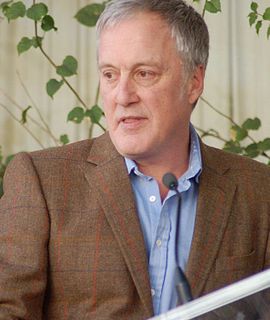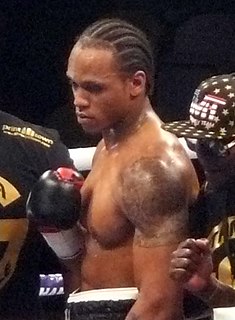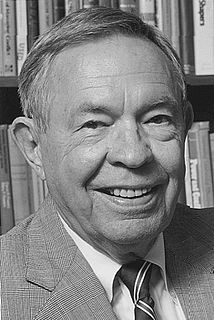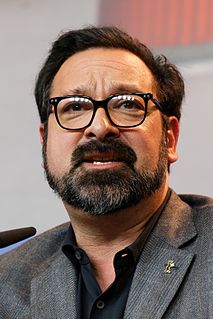A Quote by Chuck Wendig
Characters exist in a flat line until we challenge them - sometimes they challenge themselves, sometimes they're challenged by other people, by nature, by robots, or by fungal infections in and around one's nether-country. Stories need conflict across the physical, emotional, intellectual and spiritual spectra. Accidents, betrayals, cataclysm, desperation, excess - these are the letters in the alphabet of conflict.
Related Quotes
The accidents of my life have given me the ability to make stories in which different parts of the world are brought together, sometimes harmoniously, sometimes in conflict, and sometimes both - usually both. The difficulty in these stories is that if you write about everywhere you can end up writing about nowhere.
At times you have to fight. No way around it. At some point, every one of us is confronted with danger or injustice. How we choose to combat that challenge is often life-defining. You can face difficulties head-on, or run from them, or ignore them until they consume you. But no one escapes conflict. No one.
A lot of the challenge with TV, as opposed to making movies, is that you have to leave room for the characters in the story to tell themselves. Sometimes you don't know where a character is going to go and what's going to happen to them until you've seen the actor take that part and make it their own.
Love, experienced thus, is a constant challenge; it is not a resting place, but a moving, growing, working together; even whether there is harmony or conflict; joy or sadness, is secondary to the fundamental fact that two people experience themselves from the essence of their existence, that they are only one with each other by being one with themselves, rather than by fleeing from themselves.
I always talk about Meredith and Derrick from 'Grey's Anatomy,' and I loved them the most when they sort of opened and closed each episode with them in bed, happy with each other, and you didn't need to insert extra conflict into them, because there was plenty of conflict in the show. So they were this port in the storm of conflict.
A protective self-narrative during conflict and duress sometimes obscures us from seeing the worst in ourselves. When the self-sustaining haze lifts after that conflict has subsided, we may recognize in ourselves the flaws the other saw in us at the time that we didn't have the emotional bandwidth to examine in the moment.
One of the real dilemmas we have in our country and around the world is that what works in politics is organization and conflict. That is, drawing the sharp distinctions. But in real life, what works is networks and cooperation. And we need victories in real life, so we've got to get back to networks and cooperation, not just conflict. But politics has always been about conflict, and in the coverage of politics, information dissemination tends to be organized around conflict as well.
Most parents hate to experience conflict, are deeply troubled when it occurs, and are quite confused about how to handle it constructively. Actually, it would be a rare relationship if over a period of time one person's needs did not conflict with the other's. When any two people (or groups) coexist, conflict is bound to occur just because people are different, think differently, have different needs and wants that sometimes do not match.
When you have a conflict, that means that there are truths that have to be addressed on each side of the conflict. And when you have a conflict, then it's an educational process to try to resolve the conflict. And to resolve that, you have to get people on both sides of the conflict involved so that they can dialogue.
It's absurd and quite tragic the way people have managed to pit science against faith. They aren't in conflict at all - they're long lost dance partners. I don't divide the world up into Christians and other people - we are all human beings, brothers and sisters, and we embrace truth wherever we find it, whether that's in a lab, a field or a cathedral. Because sometimes you need a scientist and sometimes you need a poet.
For me, making a lot of dramas on one side it's a different sort of challenge, and on the other, it's not a challenge at all, meaning that my goal is to try and bring the realism and acting you might find in a straight drama with the intentions and conflict, where it doesn't feel tongue-in-cheek, but rather committed and real.
The nature of acting is that one is many characters and jumps from one skin to another as a way of life. Sometimes it's hard to know exactly what all of your characters think at the same time. Sometimes one of my characters overrules one of my other characters. I'm trying to get them all to harmonize. It's a hell of a job. It's like driving a coach.






































